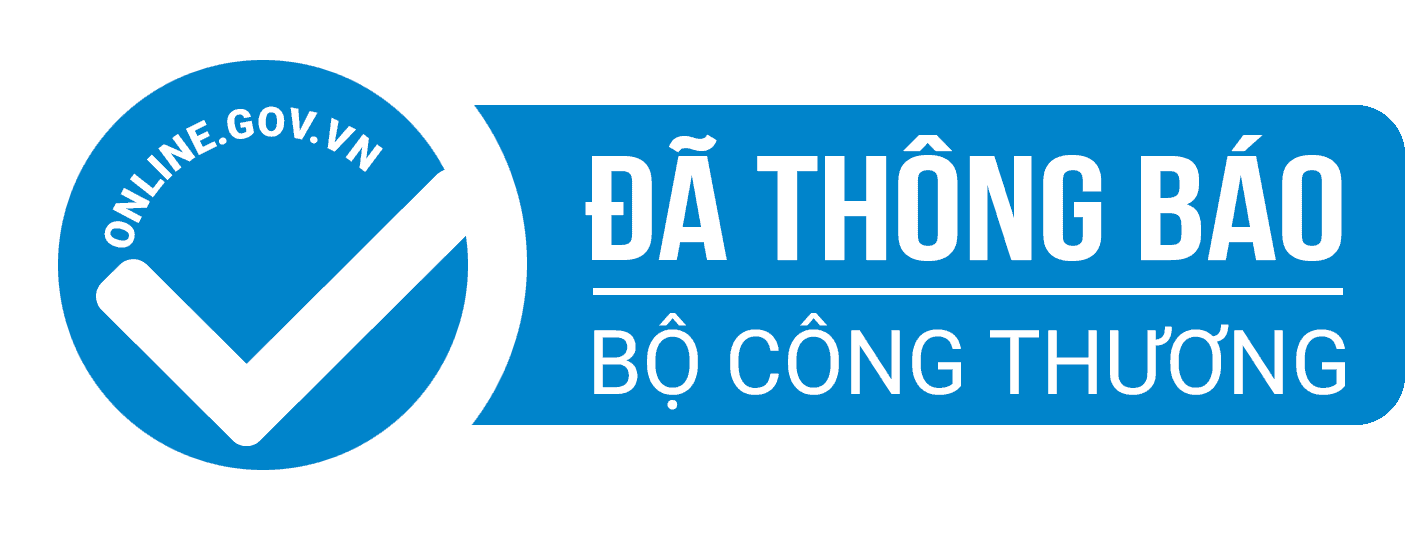Embarking on a journey through the captivating landscapes of Thailand and Vietnam necessitates careful consideration of Thai and Vietnam currency dynamics. The intersection of Thai Baht and Vietnam Dong becomes a crucial focal point for travelers, influencing decisions on budgeting, expenditures, and overall financial planning. Whether you wonder “is Thailand cheaper than Vietnam” or how to convert Thai Baht to Vietnamese Dong, we have got you covered.
1. An overview of Thai Baht and Vietnam Dong
1.1. Information about Thai Baht
Thai Baht, denoted by the symbol ฿, is the official legal currency of the Kingdom of Thailand. The currency is divided into smaller units called satangs, with 100 satangs equivalent to one baht, similar to the concept of cents in Canadian or US dollars.
The Bank of Thailand, Thailand's central bank, has the authority to oversee the minting of Thai coins and the printing of Thai banknotes. As of 2020, Thai coins are minted in denominations of 1, 5, 10, 25, and 50 satangs, as well as ฿1, ฿2, ฿5, and ฿10 coins. Banknotes are issued in denominations of ฿20, ฿50, ฿100, ฿500, and ฿1,000. The current series of Thai banknotes, introduced in 2018, features a portrait of King Maha Vajiralongkorn on the obverse side. Each denomination's reverse side displays an image of a preceding ruler of the country.
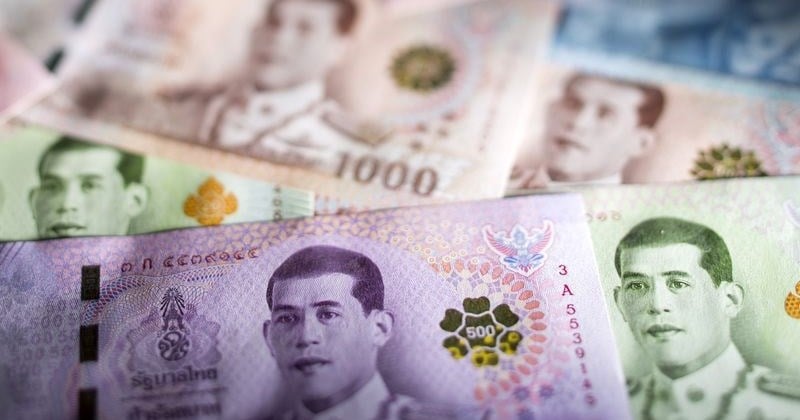
1.2. Information about Vietnam Dong
The official currency of Vietnam money is the Vietnamese dong (VND), represented by the symbol "₫’’. The term "dong" has historical significance as it originally referred to the copper material used in crafting the country's earliest coins. The dong has been Vietnam's official currency since 1978, with its issuance regulated by the State Bank of Vietnam.
Currently, there are two main types of Vietnamese currency notes in circulation. Firstly, there are polymer notes available in denominations of 500,000 VND, 200,000 VND, 100,000 VND, 50,000 VND, 20,000 VND, and 10,000 VND. These notes are designed for durability and longevity, enhancing their resistance to wear and tear. Secondly, there are paper notes with denominations of 5,000 VND, 2,000 VND, 1,000 VND, 500 VND, and 200 VND. However, the two lowest denominations, 500 VND and 200 VND, are rarely used due to their minimal value.
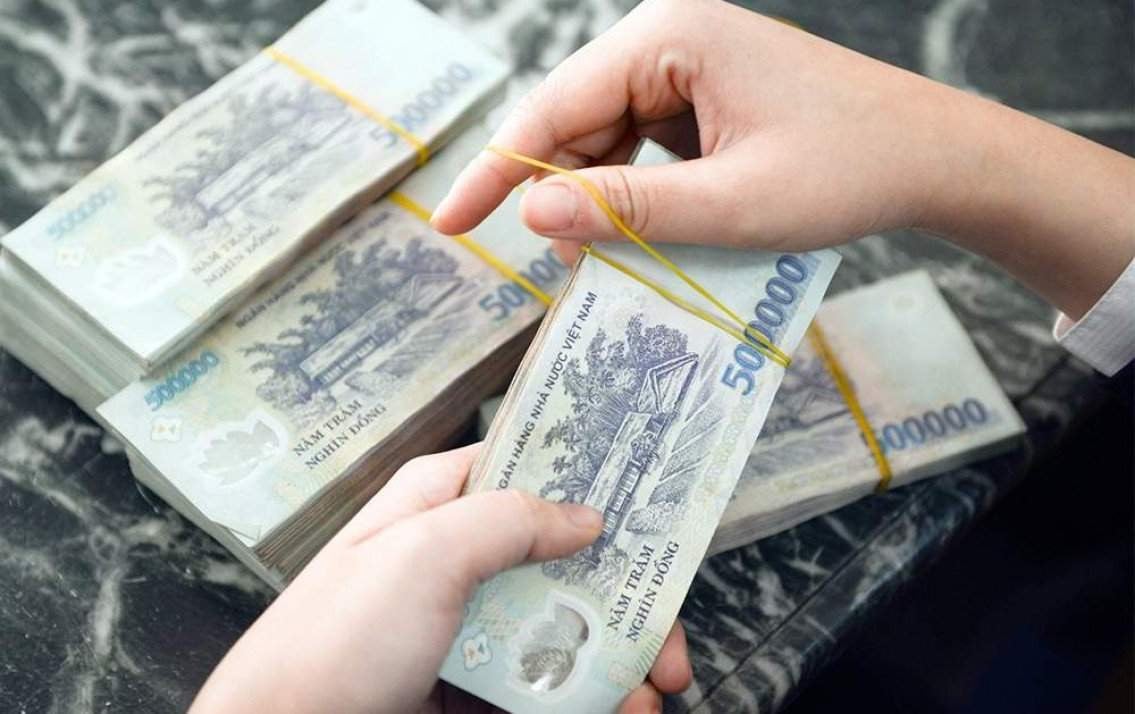
>>> Read more: 23 best Southeast Asia travel destinations to visit once in a lifetime!
2. Current exchange rate from Thai Baht to Vietnam Dong
To help you become familiar with the exchange rate before your Vietnam travel, refer to the following table for a better estimation:
| Estimated conversions (as of January 29, 2024) | |
| Thai Baht | Vietnam Dong |
| 1 THB | 687.250 VND |
| 300 THB | 206,082.42 VND |
| 500 THB | 343,210.78 VND |
| 1000 THB | 686,421.57 VND |
| 5000 THB | 3,434,199.2 VND |
| 10 000 THB | 6,868,398.4 VND |
For travelers planning their Vietnam journey, using these estimates will help with budgeting and financial arrangements. However, please note that exchange rates from Thai Baht to Vietnam Dong may vary slightly between locations and service providers.
>>> Read more: Asia travel: A worthwhile journey to explore nature and culture!
3. What affects conversion from Thai Baht to Vietnam Dong?
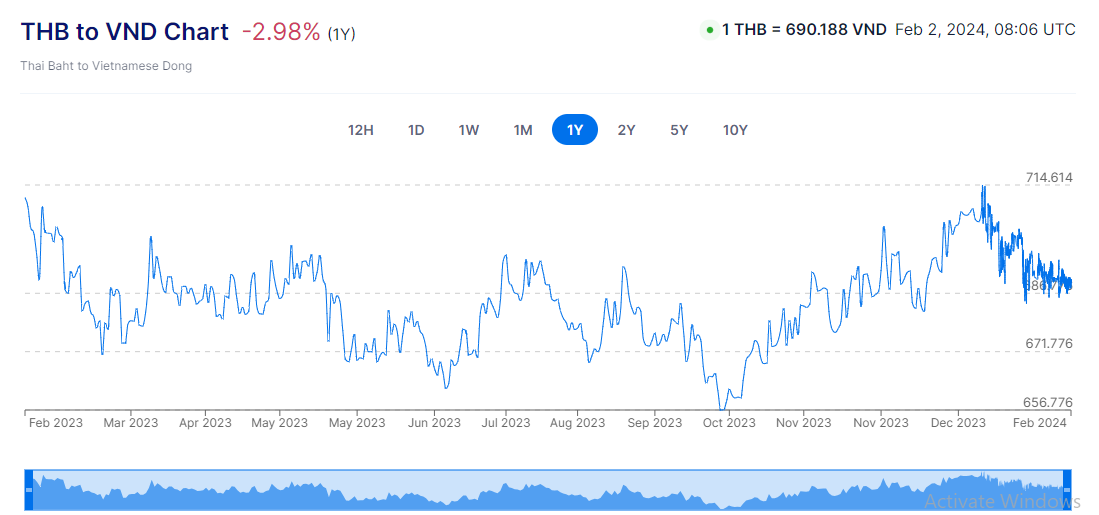
Over the past year, the Thai Baht to Vietnam Dong exchange rate has experienced significant fluctuations due to various factors. It is crucial for individuals and businesses engaged in cross-border transactions or Vietnam travel to understand these elements before making any financial decisions.
- Inflation: High inflation rates in Thailand and Vietnam can lead to a depreciation of Thai Baht and Vietnam Dong, affecting its value against others
- Public debt: Large public deficits and government debt in Thailand and Vietnam can discourage foreign investment, potentially leading to a fall in the exchange rate from Thai Baht to Vietnam Dong
- Political stability: Stability attracts investors, leading to currency appreciation; instability may result in depreciation
- Economic recession: During a recession, the Thai Baht and Vietnam Dong may depreciate due to reduced interest rates prompting capital outflows
- Terms of trade: Favorable terms of trade may increase demand for the Thai Baht, strengthening its value.
- Current account deficits: Deficits in Vietnam and Thailand current accounts can weaken the domestic currency
- Confidence and speculation: Changes in these countries’ commodity prices or political events can lead to currency depreciation
- Government intervention: Governments and central banks can intervene to stabilize a currency through trade policies, money supply adjustments, or interest rate changes, thereby affecting the exchange rate from Thai Baht to Vietnam Dong
- Stock markets: Rising stock markets in Thailand and Vietnam often attract foreign investors and increasing demand for the local currency
>>> Explore: Travel to Vietnam tips: All guides a newcomer should know
4. Is Vietnam Dong cheaper than Thai Baht?
In currency exchange, a higher exchange rate for one currency against another generally indicates that the first currency is stronger or more valuable than the second currency. Consequently, with the provided exchange rate of approximately 1 Thai Baht equivalent to 690 Vietnam Dong, it is evident that the Thai Baht holds a stronger or higher value than the Vietnam Dong in the currency market.
Given this currency dynamic, Vietnam has always been among the cheap Asia travel destinations. The strength of the Thai Baht against the Vietnam Dong positions Vietnam as an attractive and cost-effective option for those seeking budget-friendly travel experiences in the region.
>>> Read more: Asia tours: A guide to exploring the finest offerings of the continent!

5. Tips for Thai Baht to Vietnam Dong exchange and payment
Upon your arrival in Vietnam, exchanging Thai Baht to Vietnam Dong is one of the initial tasks to ensure smooth transactions during your Southeast Asia travel. Below is some valuable information about currency exchange and payment methods.
5.1. Currency exchange from Thai Baht to Vietnam Dong options
Here are some options to consider for seamless and informed financial transactions:
- Airports: Currency exchange booths are prevalent at most Vietnamese airports, offering convenience with 24/7 availability. It is particularly advantageous for those arriving during late hours.
- Banks: Banks typically provide better exchange rates, but the process may be time-consuming and require additional documentation. Check the operating hours and requirements beforehand.
- Gold and jewelry shops: These establishments may be more accessible but often impose higher Thai Baht to Vietnam Dong exchange rates and hidden fees. Carefully review associated fees before making transactions.
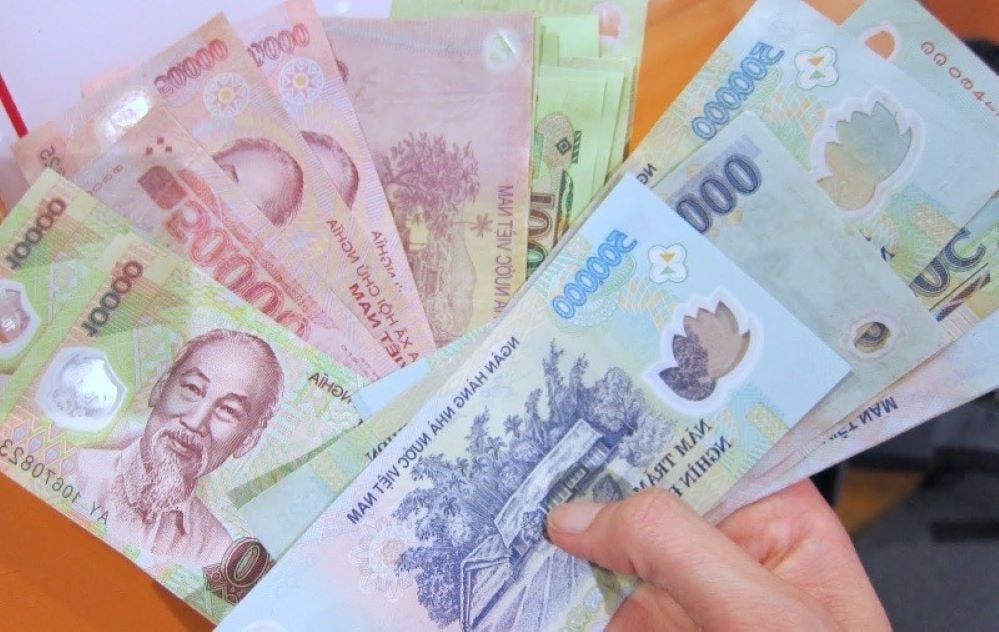
5.2. Payment methods in Vietnam
In Vietnam, various payment methods cater to the diverse needs of both locals and visitors.
- Cash: Paying in cash is common for small purchases, street vendors, or in remote areas. You can withdraw Vietnam Dong from ATMs accepting international cards at international airports or multiple locations within your destination.
- Card: Most establishments accept major credit cards such as Visa, covering expenses like hotels, tours, restaurants, etc. Do not forget to check with your card provider for conversion rates and potential swiping fees.
5.3. Additional tips
To avoid any issues with payments and currency exchange in Vietnam, keep in mind these notes:
- Ensure your card is compatible with local ATMs. Check for withdrawal limits and notify your bank before using your card in Vietnam to avoid any issues.
- Only exchange Thai Baht to Vietnam Dong at reputable and trustworthy locations to ensure a secure and transparent transaction
- Be cautious of street vendors and local markets using similar-colored bills to scam visitors, especially with denominations like 500,000 VND and 20,000 VND.
- Have smaller denominations on hand, as some vendors and small businesses may not have change for larger bills.
- If using credit or debit cards, inform your bank beforehand to prevent any potential issues related to suspicious activity.
>>> Read more: Vietnam travel costs: Understand the expenses to budget for your trip!
In conclusion, understanding the dynamics of currency exchange from Thai Baht to Vietnam Dong provides valuable insights for first-time travelers to these beautiful countries. If you are wondering “is Vietnam more expensive than Thailand”, the provided exchange rate may indicate that Vietnam is one of the most economical choices in Southeast Asia. Before deciding where to exchange your Thai Baht, don’t forget to research and compare exchange rates among different locations to ensure a smooth experience.
When planning your upcoming trip to Vietnam, consider visiting Hanoi, Ho Chi Minh City, Phu Quoc, Nha Trang, Hoi An, and Ha Long. Each destination promises a unique adventure, ensuring your Vietnam trip is filled with cultural immersion and breathtaking sights.

Additionally, indulging in the hospitality and luxury services provided by Vinpearl's hotels and resorts can enhance the overall travel experience. Its modern amenities and services provide a comfortable and memorable stay for tourists exploring the wonders of Vietnam. For those seeking extra thrilling activities, VinWonders, the entertainment paradise, promises a brief escape into a world of amusement and joy.

>>> Book rooms in Vinpearl Phu Quoc, Vinpearl Nha Trang, Vinpearl Resort & Golf Nam Hoi An, Vinpearl Resort & Spa Ha Long to make the most of every special promotion available!

















